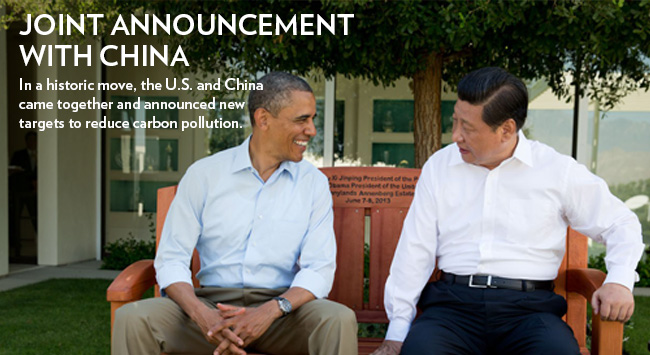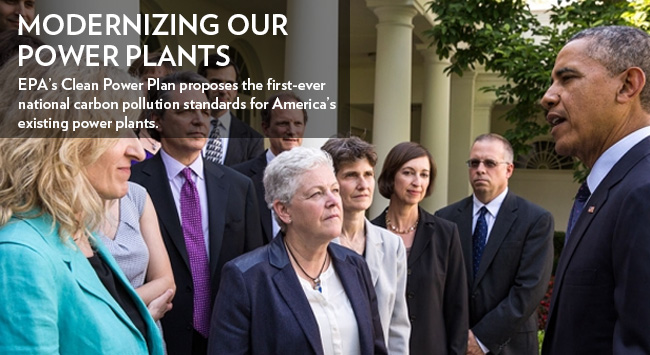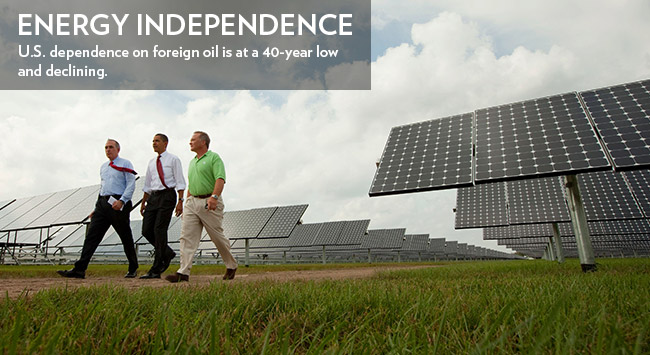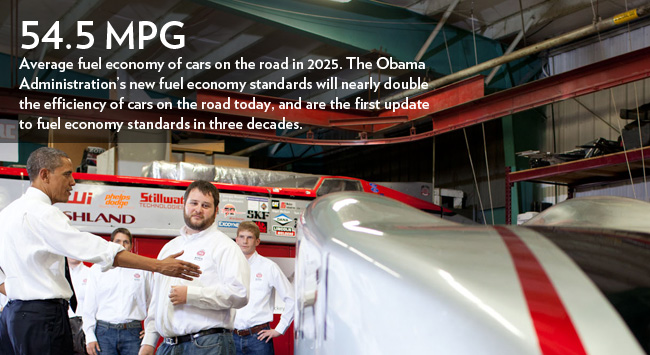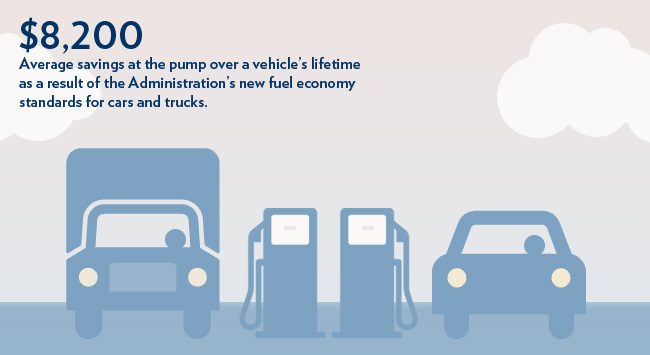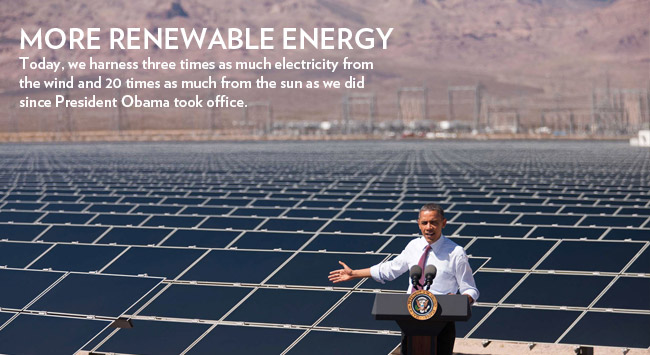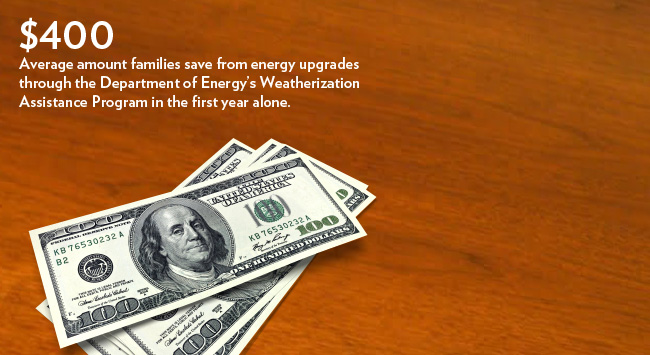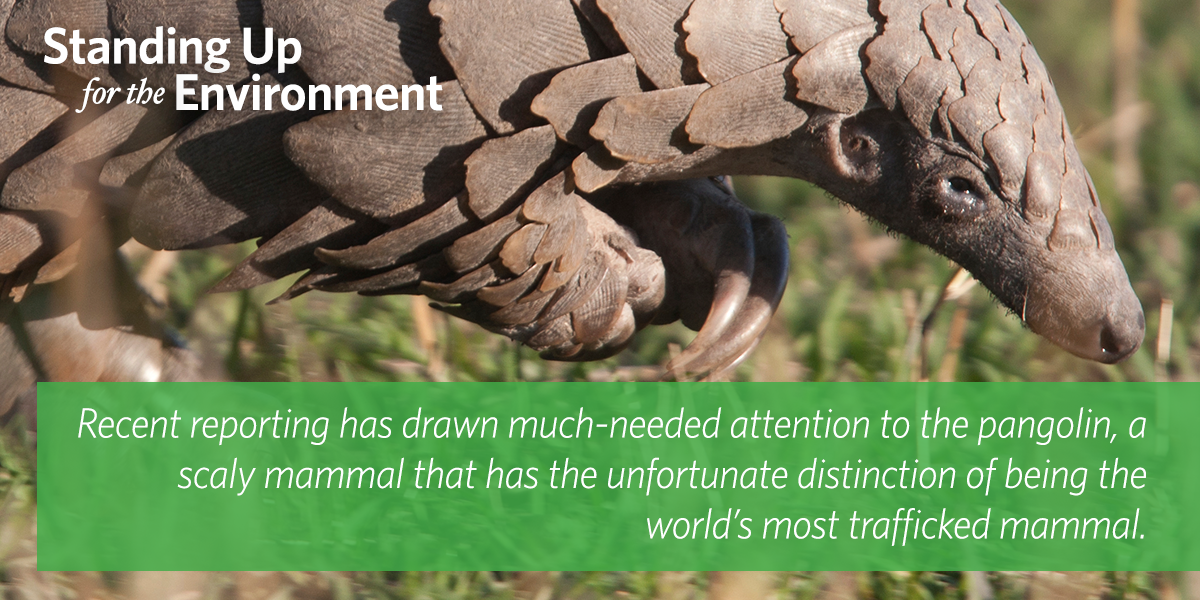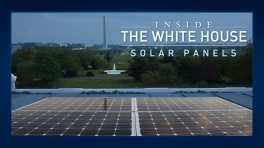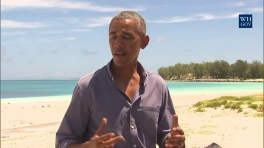Energy and Environment Latest News
What They’re Saying: Military Leaders Respond to the President’s Call to Battle Climate Change
Posted by on May 21, 2015 at 3:41 PM ESTYesterday, President Obama delivered the commencement address to the 134th Cadet Class of the U.S. Coast Guard Academy. The President congratulated the class on all they had achieved over the last four years, but reminded them of the challenges they will face both domestic and abroad; challenges like counter-terrorism, counter-narcotics, search and rescue, and disaster relief.
Of the greatest challenges the Cadets will face will be those wrought by our changing climate. As the President stated:
“Around the world, climate change increases the risk of instability and conflict. Rising seas are already swallowing low-lying lands, from Bangladesh to Pacific islands, forcing people from their homes. Caribbean islands and Central American coasts are vulnerable, as well. Globally, we could see a rise in climate change refugees. And I guarantee you the Coast Guard will have to respond. Elsewhere, more intense droughts will exacerbate shortages of water and food, increase competition for resources, and create the potential for mass migrations and new tensions. All of which is why the Pentagon calls climate change a ‘threat multiplier.’”
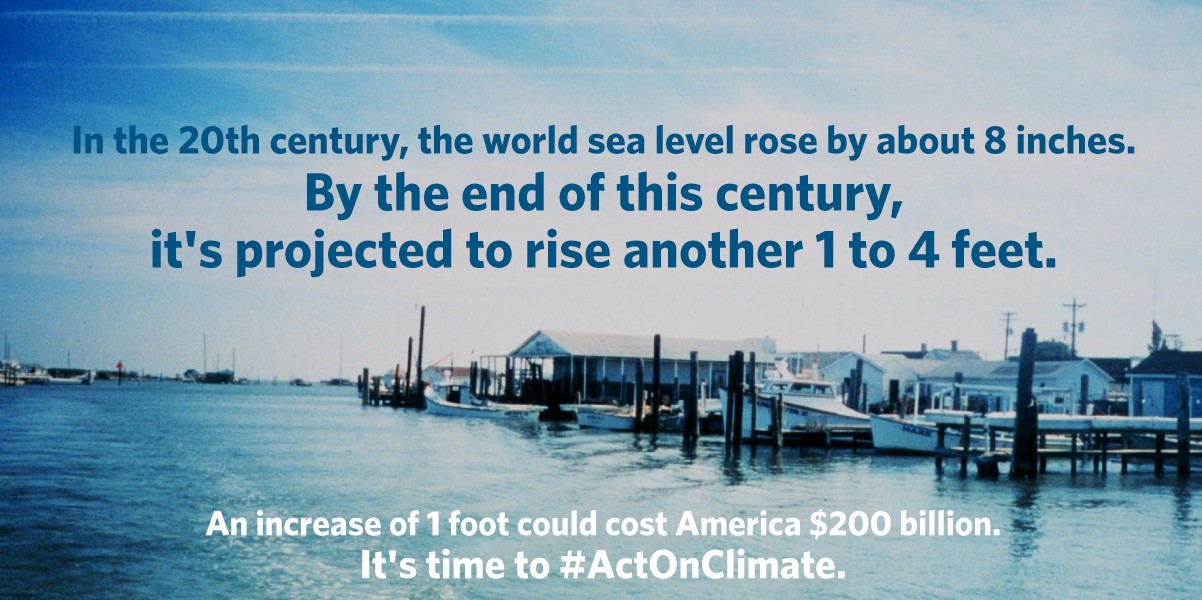
Learn more about Energy and EnvironmentPresident Obama Addresses the U.S. Coast Guard Academy’s Class of 2015
Posted by on May 21, 2015 at 11:05 AM ESTYesterday, President Obama traveled to New London, Connecticut to give the commencement address to the class of 2015 at the U.S. Coast Guard Academy.
Learn more about Energy and EnvironmentAmerica's Trade Ambassador: Tackling Environmental Challenges Through Trade
Posted by on May 20, 2015 at 11:11 AM ESTEd. note: The following was originally posted on Tradewinds, the official blog of the United States Trade Representative. You can read the original post here.
Today’s environmental challenges are staggering in their severity and scope.
Iconic animals such as elephants and rhinoceros, as well as lesser known species, such as the pangolin, saola, vaquita, and totoaba are under threat from wildlife trafficking. Illegal fishing is driving global economic losses in the billions each year while depleting treasured marine resources. While illegal logging is damaging ecosystems and undercutting sustainable, regulated business.
Learn more about , Economy, Energy and EnvironmentUnlocking Wind Power Across America
Posted by on May 19, 2015 at 3:31 PM EST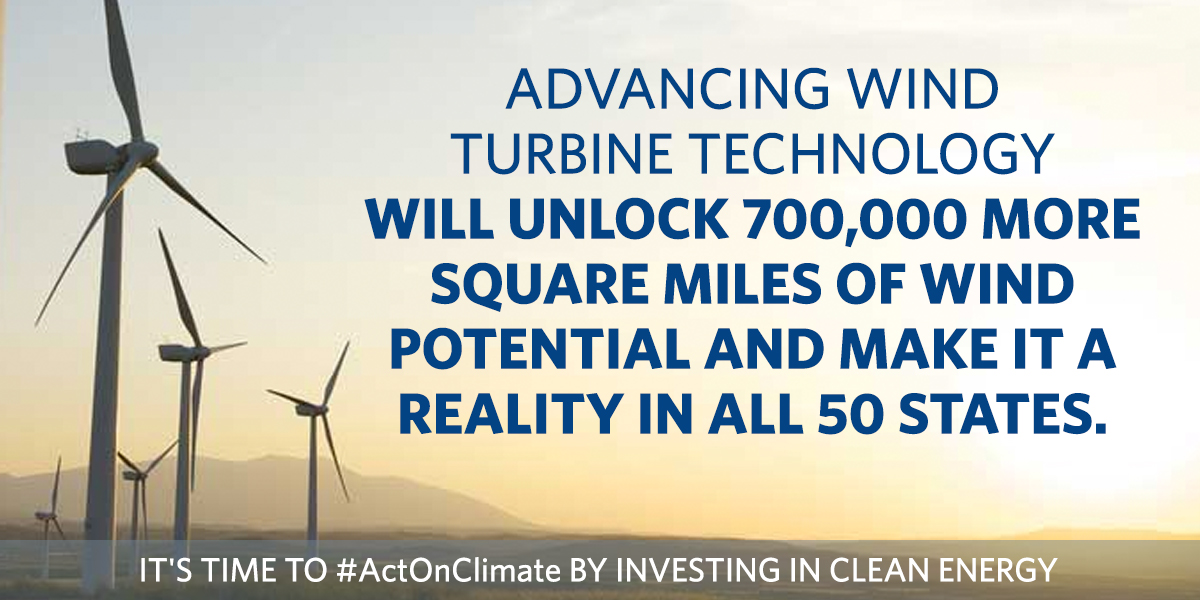
Now available in 39 states, wind power has emerged as an important source of American clean energy – and there’s potential for even more. Today, the Energy Department released a new report – Enabling Wind Power Nationwide – that shows how the next generation of wind turbines can help expand wind power in all 50 states.
Learn more about Energy and EnvironmentAnnouncing New Steps to Promote Pollinator Health
Posted by on May 19, 2015 at 8:00 AM ESTPollinators are critical to the Nation’s economy, food security, and environmental health. Honey bee pollination alone adds more than $15 billion in value to agricultural crops each year, and helps ensure that our diets include ample fruits, nuts, and vegetables. This tremendously valuable service is provided to society by honey bees, native bees and other insect pollinators, birds, and bats.
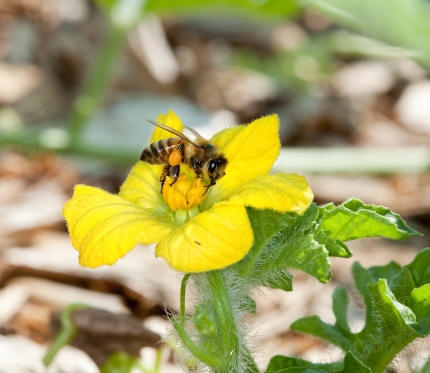
A honey bee, with pollen attached to its hind leg, pollinating a watermelon flower. (Photo by Stephen Ausmus/USDA)
But pollinators are struggling. Last year, beekeepers reported losing about 40% of honey bee colonies, threatening the viability of their livelihoods and the essential pollination services their bees provide to agriculture. Monarch butterflies, too, are in jeopardy. The number of overwintering Monarchs in Mexico’s forests has declined by 90% or more over the past two decades, placing the iconic annual North American Monarch migration at risk.
That’s why last June, President Obama issued a Presidential Memorandum directing an interagency Task Force to create a Strategy to Promote the Health of Honey Bees and Other Pollinators. Today, under the leadership of the U.S. Environmental Protection Agency (EPA) and U.S. Department of Agriculture (USDA), the Task Force is releasing its Strategy, with three overarching goals:
- Reduce honey bee colony losses to economically sustainable levels;
- Increase monarch butterfly numbers to protect the annual migration; and
- Restore or enhance millions of acres of land for pollinators through combined public and private action.
The Strategy released today and its accompanying science-based Pollinator Research Action Plan outline needs and priority actions to better understand pollinator losses and improve pollinator health. These actions will be supported by coordination of existing Federal research efforts and accompanied by a request to Congress for additional resources to respond to the pollinator losses that are being experienced.
Increasing the quantity and quality of habitat for pollinators is a major part of this effort—with actions ranging from the construction of pollinator gardens at Federal buildings to the restoration of millions of acres of Federally managed lands and similar actions on private lands. To support these habitat-focused efforts, USDA and the Department of Interior are today issuing a set of Pollinator-Friendly Best Management Practices for Federal Lands, providing practical guidance for planners and managers with land stewardship responsibilities.
The President has emphasized the need for an “all hands on deck” approach to promoting pollinator health, including engagement of citizens and communities and the forging of public-private partnerships. To foster collaboration, the interagency Pollinator Health Task Force will work toward developing a Partnership Action Plan that guides coordination with the many state, local, industry, and citizen groups with interests in and capacities to help tackle the challenge facing pollinators.
Learn more about Energy and EnvironmentCelebrating National Bike to Work Day
Posted by on May 15, 2015 at 3:25 PM ESTToday is Bike to Work Day, and Federal employees here in Washington D.C. and in cities across the country are leaving their cars at home and biking into work. As the Administration’s Federal Chief Sustainability Officer, I always appreciate the opportunity to applaud Federal employees’ doing their part to reduce the Federal Government’s carbon footprint.
Biking to work may seem like a small step, but more sustainable commuting – be it biking, walking or using public transportation – benefits everyone. Those benefits include important emissions reductions that protect public health, but there are others as well. Anyone who’s ever been stuck in rush hour traffic understands the value of having fewer cars on the roads. And walking and biking promotes healthy living and fitness.
For many of my colleagues, Bike to Work day is part of a larger, nationally coordinated Federal Bike to Work Challenge. This challenge calls on Federal employees to form teams that encourage participants to set commitments, like bike commuting at least once a week during May. Each rider keeps track of their miles online, which spurs some friendly competition between agency teams to log the most miles.
Last year, over 2,100 Federal riders participated, 400 of them new bike commuters. They logged more than 266,000 bike commute miles, avoiding about the same number of pounds of CO2 emissions. Plus, the Federal Bike to Work Challenge has introduced new riders to bike commuting and has helped make biking an integral part of organizational culture across the Federal community. President Obama has set an aggressive goal to reduce the Federal Government’s direct greenhouse gas emissions 40 percent by 2025 in his recent Executive Order on Federal Sustainability. Through the Executive Order, the President has directed Federal agencies to not only cut emissions from direct sources like buildings, but also from indirect sources like employee commuting. Culture changes like those promoted through the Federal Bike to Work Challenge will play an important role in helping achieve these goals.
I am proud to see initiatives like the Federal Bike to Work Challenge gain popularity each year, and was happy to see so many riders, both Feds and non-Feds, out on National Bike to Work Day today. Have fun, be safe and keep up the good work!
Kate Brandt is the Federal Chief Sustainability Officer at the White House Council on Environmental Quality.
Learn more about Energy and Environment
- &lsaquo previous
- …
- 4
- 5
- 6
- 7
- 8
- 9
- 10
- 11
- 12
- …
- next &rsaquo
White House Blogs
- The White House Blog
- Middle Class Task Force
- Council of Economic Advisers
- Council on Environmental Quality
- Council on Women and Girls
- Office of Intergovernmental Affairs
- Office of Management and Budget
- Office of Public Engagement
- Office of Science & Tech Policy
- Office of Urban Affairs
- Open Government
- Faith and Neighborhood Partnerships
- Social Innovation and Civic Participation
- US Trade Representative
- Office National Drug Control Policy
